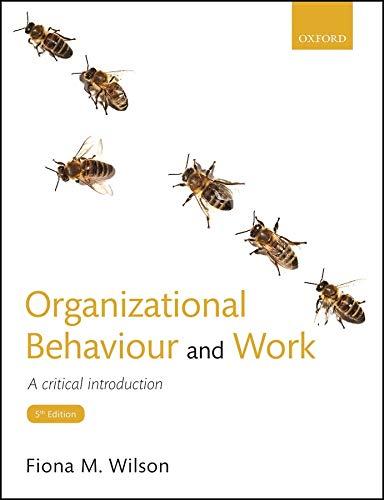In the chapters on leadership and personality, we encountered Jack Welch, chief executive officer of General Electric.
Question:
In the chapters on leadership and personality, we encountered Jack Welch, chief executive officer of General Electric. The following describes how he brought about change.
General Electric’s transformational change has been described as ‘one of the most far-reaching programs of innovation in business history’ (Tichy, 1993). It included internationalizing the operations of the company, ‘delayering’ (that is, taking layers out of the hierarchy), reducing bureaucracy and hierarchy, and encouraging cross-functional teamwork. Changes such as these may introduce great uncertainty in the minds of shareholders about the impact of the change on the performance of the company, but General Electric was apparently successful in both retaining shareholder support and growing it.
Palmer et al. (2004) looked in detail at how Jack Welch communicated with the shareholders of General Electric in his letters to them, taken from annual reports during these times of transformational change (spanning 20 years). They identified five core ‘change conversations’ that sought to reassure shareholders and reduce uncertainty around outcomes of the organization’s transformational changes:
1. Welch used warnings: for example, mentioning the problems and threats that the organization faced.
2. He discussed actions that the company had taken to address these problems and challenges.
3. He used explanations to provide the rationale behind these actions.
4. He described what had been achieved.
5. He predicted what was going to happen next.
This is interesting research, because it shows how one leader tried to bring about a process of change but raises a series of questions.
Questions
1. If these are the core conversations that are found in an organization in which transformational change was considered successful, would different conversations be found in one that was unsuccessful?
2. What would happen if one, two, or more of these kinds of conversations had not taken place?
3. How do we know that the change conversations had an effect on shareholder support? Might there be other factors at play: for example, media reports?
4. Was the transformational change successfully brought about by Jack Welch or his staff?
5. What questions does this research on organizational transformation raise for you?
Step by Step Answer:

Organizational Behaviour And Work A Critical Introduction
ISBN: 9780198777137
5th Edition
Authors: Fiona M. Wilson





